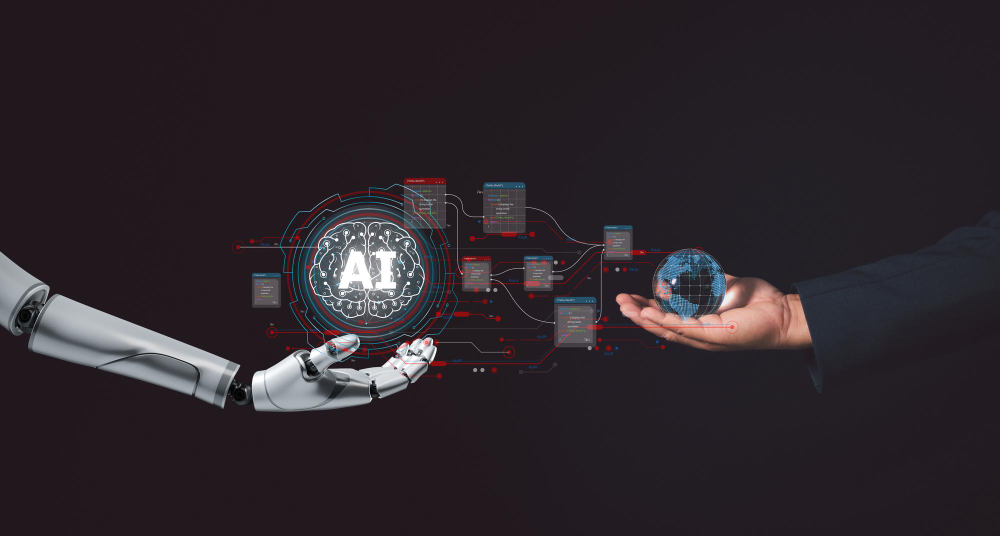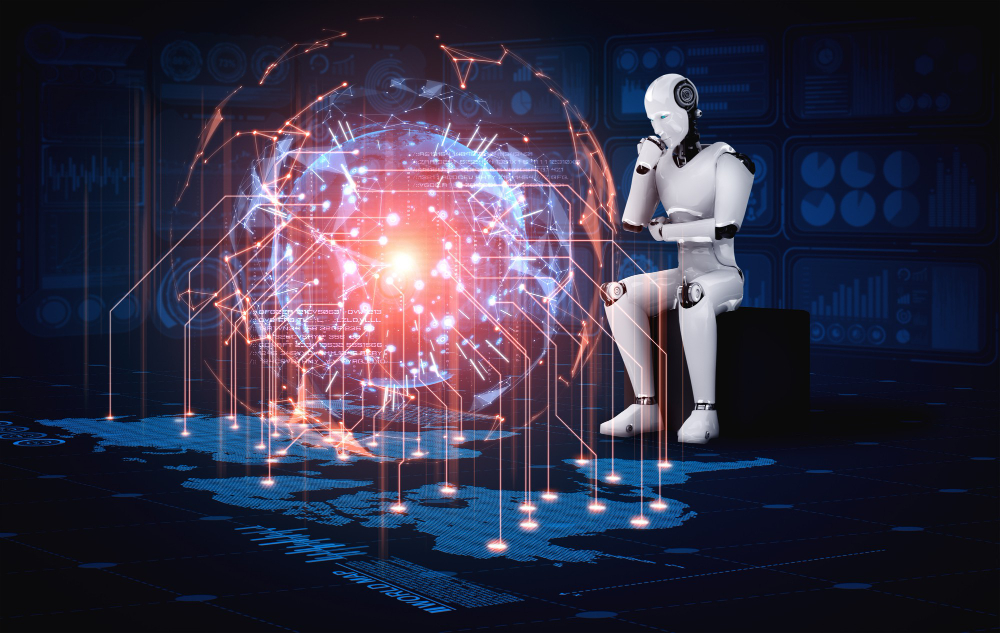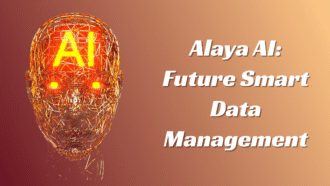How AI Application Development Services are Revolutionizing Industries
- 1 Why the Incorporation of AI in App Development is Increasing
- 2 AI Application Development Services: The Driving Force of Innovation for Industries
- 2.1 Healthcare
- 2.2 Retail
- 2.3 Financial Services
- 2.4 Manufacturing
- 2.5 Transportation
- 2.6 What are the Solutions to Standard Challenges in AI Application Development Services?
- 2.7 Algorithm Selection and Optimization
- 2.8 Data Quality and Pre-processing
- 2.9 Ethical and Bias Considerations
- 2.10 Interpretability and Explainability
- 3 Closing Thoughts
In the digital era, cognitive technologies are gaining fair attention from business leaders and entrepreneurs. Tech leaders seek to introduce AI (Artificial Intelligence) into app development workflows to balance automation and human expertise. However, the first phase in preparing for AI-powered app development is learning its potential pitfalls. Higher development costs remain the prevalent challenge of AI development.
For instance, many tech directors need to prepare to organize the large amounts of data required to train/deploy AI algorithms, and they need the assets to manage these complex systems. Undeniably, recruiters often need help hiring qualified people with Artificial Intelligence and app development expertise.
When more enterprises build apps using these technologies, cyber phishers will increasingly target them and their data. Organizations should partner with offshore AI application development service providers to hire skilled developers. They apply industry-grade practices and develop robust applications that protect user data without compromise.
Why the Incorporation of AI in App Development is Increasing

Advanced Search
The practice of integrating AI in app development is increasing to make the search outcomes more spontaneous and contextual for end-users. The AI algorithms study the diverse search queries formerly inputted by users and rank the products based on those requests. Modern applications collect user data like search histories to provide precise search results. Advanced search functionality is incorporated in many eCommerce sites, news apps, live streaming apps, and others.
Forecasting Users’ Behaviour
A tailored digital user experience starts with a precise forecast of user behavior. AI-augmented applications apprehend the user’s behavior and choice patterns. By considering customer data such as age, search history, location, and gender, the AI algorithm can forecast the interests and dislikes of the users. The information increases the effectiveness of the applications. Developers from a recognized AI application development services provider use the best set of codes that will aid in learning and forecasting the users’ sentiment more precisely.
Personalization
Personalization is one of the effective ways through which Artificial Intelligence helps tech teams leverage the power of cognition. Artificial Intelligence allows businesses to improve user engagement and enhance marketing strategy. AI algorithms embedded in applications can assess and process various business/user information sources. By analyzing this data, key stakeholders can determine their target audience, user interests, and ways to personalize products and services.
Let us take the use case of Airbnb, a famous US-based firm providing an online marketplace for best homestays. Their traveling app has recently upgraded and incorporated an advanced algorithm based on Artificial Intelligence to offer personalized outcomes based on users’ interests. By assessing the user’s previous expeditions, the app optimizes the results on location, cost, number of people, and total days.
AI-based assistance helps us to increase our revenue by more than $75 billion, says, Clint, Strategic Leader”.
AI Application Development Services: The Driving Force of Innovation for Industries

Healthcare
The integration of Artificial Intelligence in the healthcare sector has emerged as a transformative force, offering numerous advantages in terms of efficiency, accuracy, and patient care. AI applications can analyze vast amounts of medical data with unprecedented speed and accuracy, aiding healthcare professionals in diagnosing conditions at an early stage. Machine learning algorithms can identify patterns and correlations in medical images, such as X-rays and MRIs, enabling quicker and more accurate diagnosis.
AI applications can assist healthcare providers in adhering to regulatory standards by automating compliance monitoring and reporting. This ensures that healthcare organizations maintain the highest data security and patient confidentiality standards.
Retail
AI application development services in retail potentially reshape the industry landscape.
- AI applications enhance supply chain management by improving visibility, predicting potential disruptions, and optimizing logistics.
- Predictive analytics help streamline the supply chain, reducing costs and ensuring timely deliveries.
- AI applications enhance security by detecting and preventing fraudulent activities like payment fraud and identity theft.
- AI-driven AR applications enable virtual try-ons and interactive shopping experiences, bridging the gap between online and in-store shopping.
As per a survey, 79% of retail product owners mention that embracing AI application development helps their customers visualize products better than in traditional environments. This helps in making strategic purchase decisions.
Financial Services
Algorithms in AI-powered applications analyze market data, news, and economic indicators to execute trades at optimal times. This way, financial apps adapt to changing market conditions, identifying investment opportunities and optimizing portfolios. AI applications assist in monitoring and ensuring compliance with complex regulatory requirements. Automated reporting systems help financial institutions keep pace with evolving regulatory frameworks and reduce non-compliance risk.
AI-powered Chatbots can assist clients in financial planning, investment advice, and wealth management. Personalized recommendations based on individual financial goals provide a more engaging and informative client experience. By hiring developers from a recognized AI app development company, finance firms can build exclusive Chatbots and optimize the user experience.
Manufacturing
AI applications analyze sensor data from machinery to predict equipment failures before they occur. Predictive maintenance minimizes downtime, optimizes asset utilization, and extends the lifespan of machinery. AI algorithms analyze historical production data, market demand, and resource availability to optimize production planning. Real-time adjustments to production schedules improve efficiency and responsiveness to changing directions.
Flexible manufacturing systems, guided by AI, accommodate varying product configurations and market demands. AI applications optimize energy usage by analyzing data from sensors and production processes. Intelligent energy management reduces operational costs and aligns with sustainable manufacturing practices.
Transportation
AI algorithms analyze real-time traffic data, historical patterns, and external factors to optimize logistics and public transportation route planning. Dynamic rerouting capabilities minimize delays, reduce fuel consumption, and enhance operational efficiency. AI applications contribute to personalized and seamless passenger experiences in public transport and ride-sharing services. Virtual assistants, Chatbots, and AI-driven recommendations improve customer interactions and satisfaction.
Risk management systems powered by AI contribute to the overall safety of passengers and cargo. AI-driven pricing models adapt to real-time demand, optimizing pricing strategies for transportation services. Revenue optimization through dynamic pricing contributes to the financial sustainability of transportation businesses.
What are the Solutions to Standard Challenges in AI Application Development Services?

In general, challenges are inevitable in AI app development. But, with strategic planning and thoughtful solutions, offshore artificial intelligence development service providers can navigate these obstacles successfully. By emphasizing data quality, addressing scalability concerns, and considering ethical implications, developers can build trustworthy AI applications. They also ensure that the final AI products are aligned with the highest standards of performance and ethical conduct. Some of the critical challenges resolved by dedicated AI developers are:
Algorithm Selection and Optimization
Challenge – Choosing the correct algorithm for a specific AI application can be daunting. Moreover, optimizing algorithms for efficient performance requires expertise and careful consideration of various factors.
Solution – Developers thoroughly analyze the application requirements and data characteristics to inform the algorithm selection process. Leverage libraries and frameworks that offer pre-optimized algorithms for everyday tasks. Engage in iterative testing and optimization cycles to fine-tune algorithms based on the application’s needs.
Data Quality and Pre-processing
Challenge – The success of any AI application relies heavily on the quality and relevance of the data used for training models. Consistent or biased data can lead to accurate predictions and reliable outcomes.
Solution – Rigorous data pre-processing is the key to addressing this challenge. Artificial Intelligence development services providers prioritize data cleansing, normalization, and augmentation processes to ensure that the training dataset is representative and unbiased. Implement thorough validation mechanisms to identify and rectify anomalies in the data.
Ethical and Bias Considerations
Challenge – AI models can inadvertently perpetuate or even exacerbate existing biases present in training data. Addressing ethical concerns and ensuring fairness in AI applications is paramount.
Solution – To minimize biases, developers prioritize diversity in the training data. Regularly audit and update datasets to reflect changing societal norms. Implement fairness-aware algorithms and conduct thorough bias testing to identify and rectify unfair outcomes.
Interpretability and Explainability
Challenge – The inherent complexity of some AI models often makes it challenging to interpret and explain their decisions. This lack of transparency can hinder gaining user trust, especially in sensitive domains like healthcare or finance.
Solution – Experts opt for interpretable models whenever possible, especially in applications where transparency is critical. Develop clear documentation and user interfaces that provide insights into model decisions.
Closing Thoughts
Artificial Intelligence holds the key to shaping the future of app development. By navigating the development challenges, educating the core concepts, and following ethical considerations, skilled AI engineers can harness the power of AI to build a more intelligent and personalized world. The engineers also help product owners embrace this transformative technology and establish a brighter future.

















